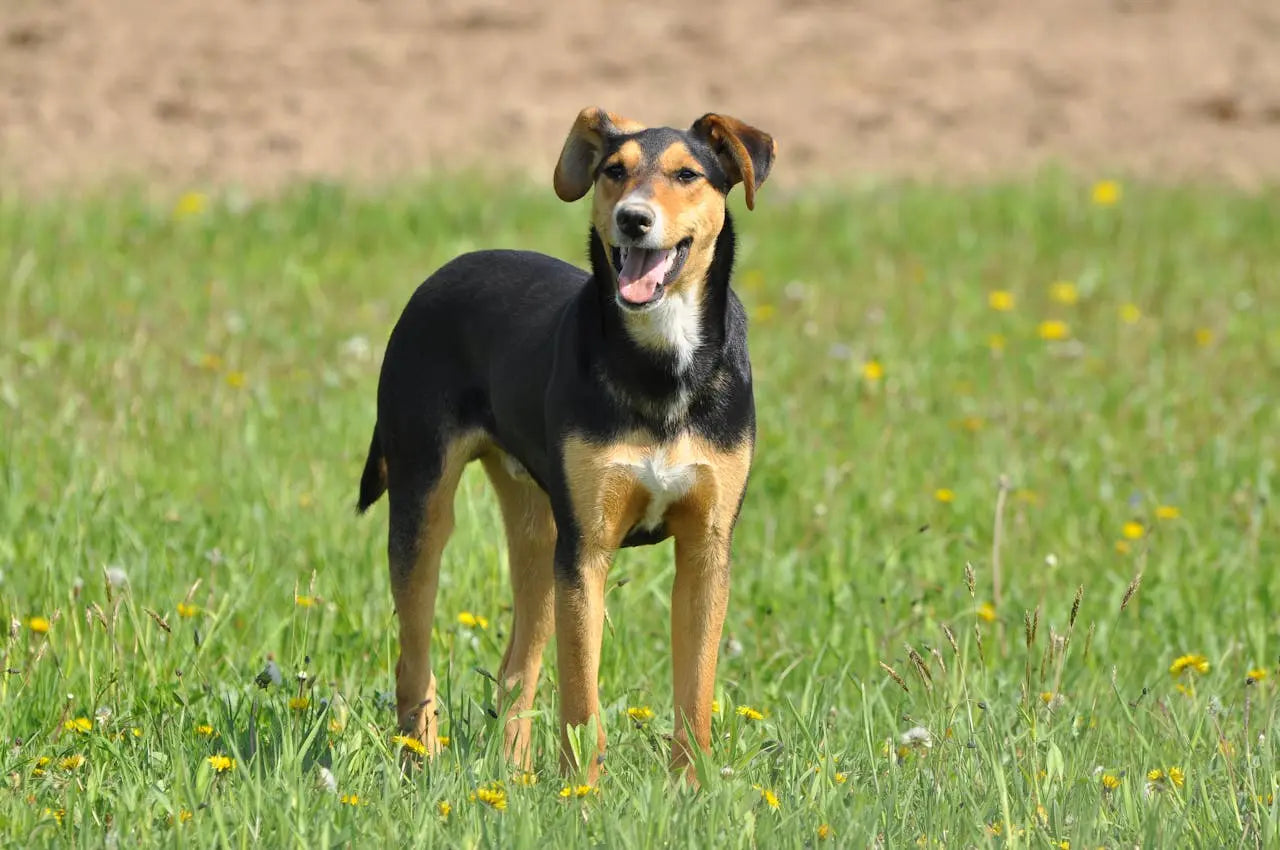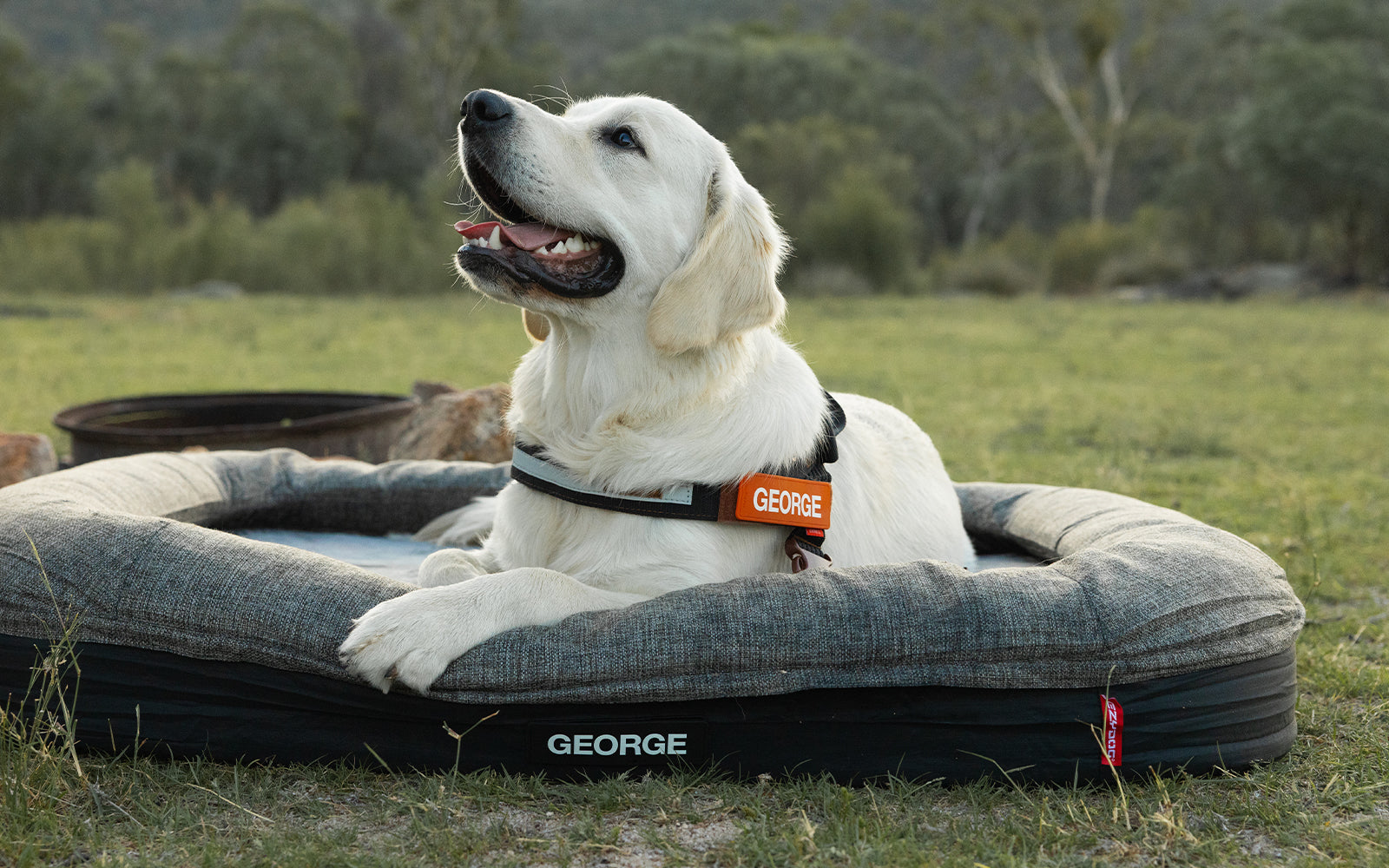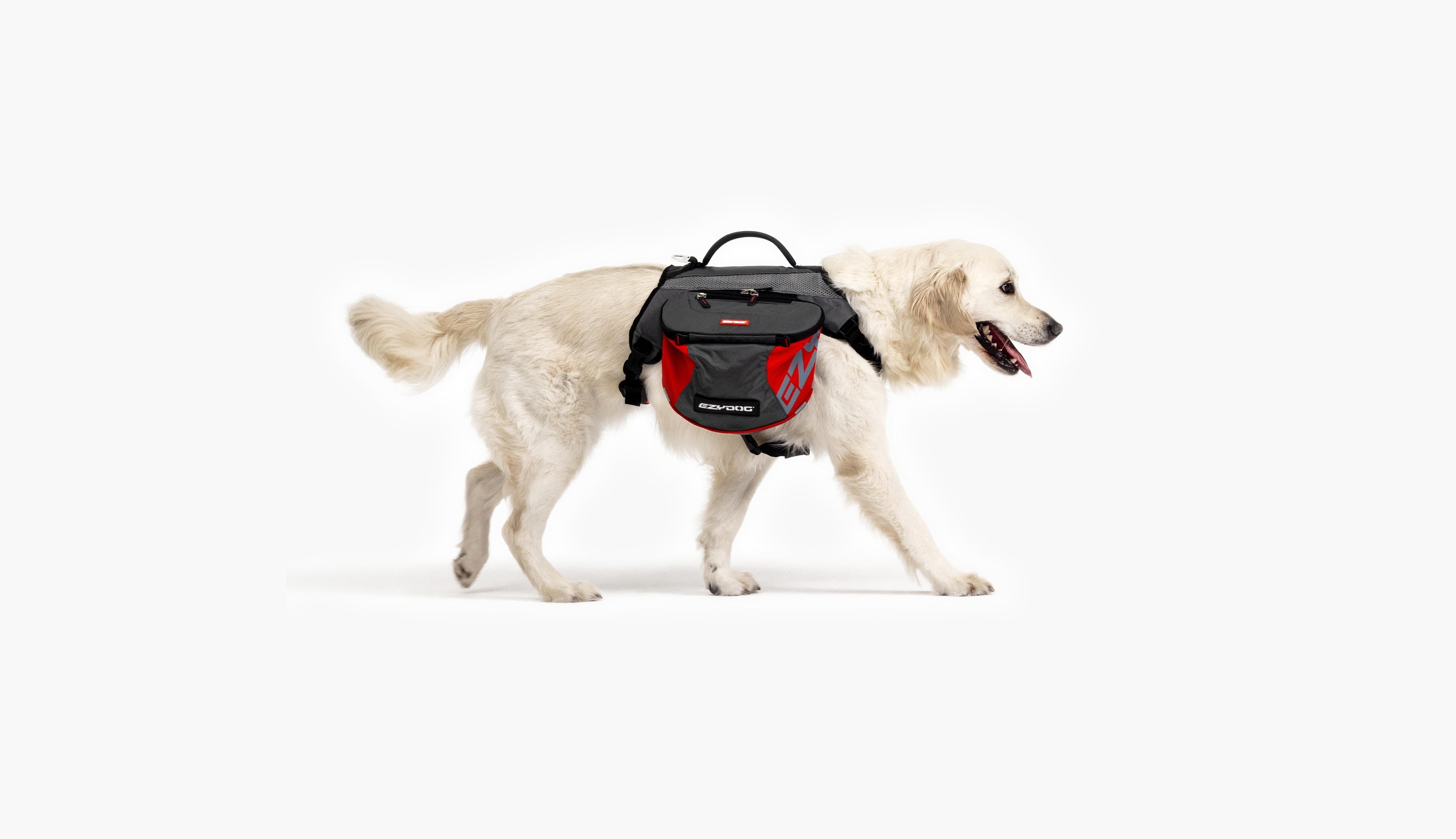
Huntaways Dog Breed: Personality, Care, Training and Gear Guide
The Huntaway is a true Kiwi icon, and a working dog developed right here in New Zealand. Known for their bark, endless stamina, and loyal temperament, Huntaways are the backbone of many sheep stations and farms. But beyond the paddock, they also make loyal, intelligent companions for active families.
This guide explores everything you need to know about Huntaways: their history, personality, training needs, health concerns, and the best gear to keep them happy in Aotearoa.
Quick Facts Overview
|
Trait |
Details |
|
Breed Name |
Huntaway |
|
Size Category |
Large |
|
Height & Weight |
55–70 cm tall, 25–40 kg |
|
Coat Type & Colours |
Short to medium double coat; black & tan, tricolour, or black |
|
Energy Level |
Very High |
|
Origin |
New Zealand |
|
Grooming Needs |
Moderate (regular brushing, seasonal shedding) |
|
Temperament |
Loyal, energetic, hardworking, intelligent, and vocal |
|
Trainability |
Highly eager to work, needs consistent training |
|
Compatibility |
Great with active families, other dogs; may be too boisterous for small pets |
|
Lifespan |
12–14 years |
Breed Origins and History
The Huntaway is one of the few dog breeds developed in New Zealand, created in the late 19th century to help herd large flocks across steep, rugged farmland. Farmers needed a dog with stamina, intelligence, and a deep, loud bark that could move sheep from a distance without nipping at their heels.
By crossing Collies, Labradors, and other working breeds, Kiwi shepherds bred a dog with incredible work ethic and strength — the Huntaway. Today, they are recognised as the ultimate NZ working dog, celebrated as part of our farming heritage.
Personality and Temperament
Huntaways are loyal, energetic, and happiest when they have a job to do. Unlike quieter herding dogs such as the Border Collie, Huntaways are bred to bark. Their powerful voice is their tool.
At home, they are affectionate and family-oriented, but their high energy means they are best suited to active households. They get along well with children and other dogs, though they may be a little overwhelming for very young kids due to their size and enthusiasm.
Recommended Gear:
Trainability and Intelligence
Huntaways are intelligent and quick learners, especially when training involves work-like tasks or active games. They respond best to consistent, positive reinforcement training. Their natural drive to herd and bark needs to be channelled early to prevent excessive barking in urban environments.
Compared to the German Shepherd, they are less protective but equally focused when given a job.
Recommended Training Gear:
Exercise and Activity Requirements
Huntaways are bred for stamina — meaning they need at least 2 hours of exercise daily, plus mental challenges. Long walks, hikes, and running are great, but they also love structured tasks like agility, obedience, or farm work simulations.
They’re not ideal for apartment living. These dogs need open spaces and active owners, much like Border Collies. Without sufficient exercise, they can become destructive or bark excessively.
Recommended Exercise Gear:
Physical Characteristics
Huntaways are large, muscular, and built for work. They have a strong chest, sturdy legs, and a robust build. Their coats vary from smooth to rough, and their expressive eyes reflect their intelligence and alertness.
They’re often mistaken for crossbreeds, but their distinct size, stamina, and booming bark set them apart as uniquely Kiwi.
Recommended Size-Specific Gear:
Living Environment Suitability
Huntaways are best suited for homes with space — ideally, rural or suburban properties. They thrive on farms, but with enough exercise and stimulation, they can adapt to an active family life in town.
They don’t do well left alone for long hours. Without company or tasks, they may bark excessively out of boredom.
Recommended Living Gear:
Grooming and Maintenance
Huntaways are fairly low-maintenance when it comes to grooming. Weekly brushing removes loose fur and keeps their coat shiny, though during shedding seasons, they’ll need more frequent grooming. Regular nail trims, ear checks, and dental care are essential.
Recommended Grooming Gear:
Common Health Issues
Huntaways are hardy dogs, but can be prone to joint issues due to their active lifestyle. Common health considerations include:
-
Hip dysplasia
-
Arthritis in older dogs
-
Eye conditions
-
Bloat (common in large breeds)
Regular vet check-ups and weight management are important. Supportive orthopaedic beds help keep them comfortable as they age.
Recommended Health Gear:
Diet and Feeding Guidelines
Huntaways have high energy demands, so they need a balanced, protein-rich diet. Portion sizes should reflect their workload: working farm dogs may eat significantly more than pet Huntaways.
Divide meals into two daily portions and avoid free-feeding to prevent obesity. Fresh water should always be available, especially after exercise.
Recommended Feeding Gear:
Frequently Asked Questions: Huntaways
1. Are Huntaways only found in New Zealand?
Yes, Huntaways were developed in NZ and remain mostly unique to our farms, though they’ve gained some recognition overseas.
2. Do Huntaways bark a lot?
Yes, barking is their working tool. They use their powerful voice to herd sheep, so expect plenty of noise without firm training.
3. Are Huntaways good family dogs?
Yes, if they have enough exercise and training. They’re affectionate and loyal but may be too energetic for very young kids.
4. How much exercise does a Huntaway need?
At least 2 hours daily, plus mental stimulation. They thrive in active, outdoor-loving households.
5. Do Huntaways get along with other dogs?
Generally, yes, as they were bred to work in teams. Proper socialisation from a young age helps.
6. Can Huntaways live in the city?
They can, but only with very active owners. Without space and stimulation, they may bark excessively or become destructive.
7. How long do Huntaways live?
They usually live 12–14 years with good care.
8. Are Huntaways easy to train?
Yes, they’re intelligent and eager, but their strong drive and barking instinct need consistent training and boundaries.
9. Do Huntaways shed a lot?
Moderately. Weekly brushing manages shedding, though seasonal changes can bring heavier coat loss.
10. Are Huntaways protective?
They’re more likely to herd than guard, but they are loyal and will alert you with their bark if something feels off.
Final Thoughts
The Huntaway is more than just a dog. It’s part of New Zealand’s farming identity. Whether you live on a station, in the countryside, or in town, owning a Huntaway means embracing energy, loyalty, and that famous bark.
With the right training, plenty of exercise, and reliable EzyDog gear, your Huntaway will be a hardworking mate and loyal family companion for many years.




Leave a comment
This site is protected by hCaptcha and the hCaptcha Privacy Policy and Terms of Service apply.